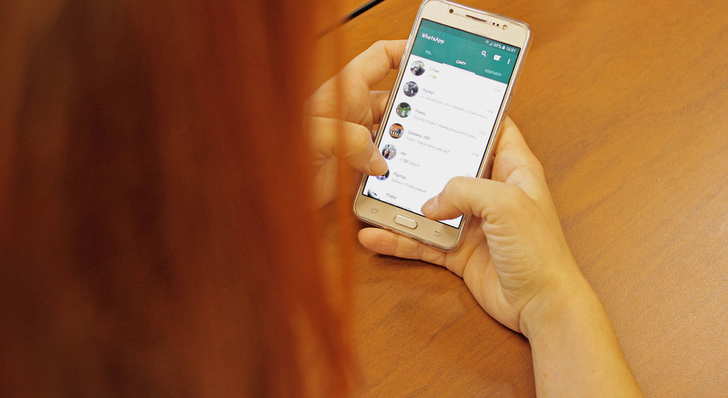
In the era of digital communication, WhatsApp has become an integral part of our daily lives. It's a platform that enables us to stay connected with our loved ones, share moments, and communicate effortlessly across the globe. With the recent update that allows users to edit sent messages, the app continues to evolve, prioritizing user experience. However, this evolution has also brought to light a controversial aspect of digital privacy—monitoring a partner's conversations. This article aims to explore the landscape of relationship transparency through the lens of WhatsApp, offering a comprehensive guide while upholding the significance of mutual respect and consent.
The Allure of Awareness: Understanding the Desire to Monitor
The impulse to know what your partner is discussing with their contacts can stem from various reasons. It could be a matter of trust, security, or simply curiosity. In some relationships, couples may mutually agree to share this information as a form of openness. Whatever the motivation, it's essential to navigate this terrain with caution and consideration for your partner's privacy and autonomy.
WhatsApp's Latest Update: A Game-Changer
WhatsApp's newest feature, allowing the editing of sent messages has been a welcome change for many users. It provides a window of opportunity to rectify errors or rethink a message's content. This update is part of a broader redesign of the app interface, which now bears a striking resemblance to its iOS counterpart, earning it the moniker "iPhone mode." While these changes enhance the user experience, they also open up new discussions about surveillance within the app.
Ethical Considerations: The Fine Line of Digital Surveillance

Before diving into the technicalities of monitoring WhatsApp activity, it's imperative to discuss the ethical implications. Respect for privacy is a cornerstone of trust in any relationship. Using tools to spy on your partner can be a violation of this trust and may have legal repercussions. It's crucial to ensure that if you're considering such a step, it's done with your partner's explicit consent and understanding. Remember, transparency should be a mutual decision, not a coerced one.
The Mechanism: How Monitoring Can Technically Be Done
For those who have navigated the ethical considerations and have mutual consent, the technical process of monitoring a partner's WhatsApp can be quite straightforward, particularly on Android devices. The operating system allows for the cloning of applications, which means you can have two instances of WhatsApp on a single phone. This feature is typically found in the settings under "clone applications" or "dual applications." By cloning WhatsApp, you can access another account on your device, but only if you have the necessary permissions and verification codes from your partner.
The Process: Step-by-Step Monitoring with Consent
With consent, the process to access your partner's WhatsApp on your phone involves a few steps. First, you'll need to navigate to your phone's settings and find the option for cloning apps. After selecting WhatsApp to clone, you may need to restart your phone for the changes to take effect. Once done, you'll open the second WhatsApp instance and set it up using your partner's phone number, which will require verification through a code sent to their device.
The Boundaries: Ensuring Respect and Privacy
Even with consent, it's vital to maintain boundaries. Agree on what is acceptable to monitor and what remains private. Also, consider the impact of this decision on your relationship's dynamics. Open communication about why this step is being taken can help prevent feelings of distrust or resentment from developing.
The Alternatives: Fostering Trust Without Surveillance
If the idea of monitoring feels uncomfortable or if consent cannot be achieved, there are healthier alternatives to foster trust. Engaging in open dialogues about concerns, actively listening to each other's perspectives, and seeking professional counseling if needed can strengthen a relationship without compromising individual privacy.
The intersection of technology and relationships presents new challenges and opportunities for connection. While the latest WhatsApp update brings exciting features, it also raises questions about privacy and trust in relationships. Monitoring a partner's WhatsApp should never be done without their explicit consent, and even then, it must be approached with care and respect for boundaries. Ultimately, the strongest relationships are built on trust, open communication, and respect for one another's autonomy. By prioritizing these values over the allure of surveillance, couples can navigate the digital age with integrity and mutual understanding.








